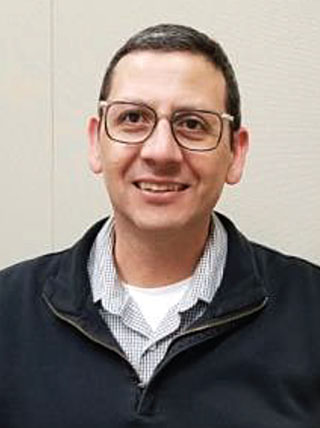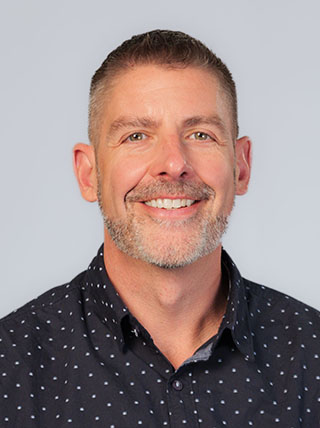Calling KPNW Members ages 30-70: Connect today to prevent cancer tomorrow
Stories - March 19, 2024

By Katie Essick, CHR Writer and Editor
 Anthony Armijo
Anthony Armijo Mark Schmidt, PhD
Mark Schmidt, PhD
Kaiser Permanente Northwest member Anthony “Tony” Armijo is neither a physician nor health researcher, but he’s part of a nationwide effort to prevent cancer.
Approached recently to participate in the Connect for Cancer Prevention Study, a research study from the National Cancer Institute (NCI), Tony didn’t hesitate.
“It has to do with my outlook on the world,” he explains. “Cancer is something we’ve been fighting for a very long time and haven’t been able to beat. I don’t want to watch the battle from the sidelines.”
In partnership with the National Cancer Institute (part of the National Institutes of Health), several health care systems in 11 states are conducting the study, with a goal of enrolling 200,000 people who will advance research on cancer risk and prevention.
It’s a remarkable undertaking. If health-oriented studies were likened to foot races, few would be sprints and most would be considered middle-distance. Connect qualifies as an ultramarathon: Participants are involved over the course of their lifetimes — completing online surveys and donating blood, urine, and saliva samples every few years.
Putting out the call
As one of the partnering health care systems involved, KPNW is engaged in Connect through its research arm, the Kaiser Permanente Center for Health Research (CHR). More than 5,200 KPNW members have been enrolled to date.
“We are gratified by the willingness of KPNW members to say ‘yes’ to Connect,” says CHR Senior Investigator Mark Schmidt, PhD. “By volunteering, they are part of a cooperative effort that could have a huge impact on preventing cancer.”
But more participants — approximately 14,000 more — are needed.
Initially, participation was limited to members ages 40-65. Both the lower and upper limits were changed recently: CHR is now recruiting members from ages 30-70.
Everyone in that age range may join the study if they have no personal history of cancer. People remain eligible if they have or once had non-melanoma skin cancer or a condition that raises cancer risk, such as stage 0 breast cancer, also called ductal carcinoma in situ (DCIS).
In addition to opening the study to more participants by way of an expanded age range, CHR’s Connect team is hoping to cast a much wider net overall, and is particularly encouraging men, people from different racial and ethnic backgrounds, and people from the LGBTQ+ community to learn more about the study.
“Currently, three-fourths of our participants are female and 80% are White,” says Schmidt. “While we are very thankful for their participation, we’d also like to have greater representation from our LGBTQ members.”
Enrolling a diverse group of people is vital so that the study’s findings can benefit everyone.
An enthusiastic ‘yes’
Tony Armijo is a healthy 55-year-old man. A project manager at a high-tech company in Hillsboro, he supports construction efforts ranging from updating conference rooms to new buildings.
Raised by a single mother in a Latino household in El Paso, Texas, he joined the Navy after graduating from high school. While not college educated, he says, he is passionate about learning and educating himself, as well as contributing to the greater good; for example, at his workplace, he serves on the leadership team of a veterans group that spans the U.S.
Recently, Tony was tapped to serve on the Connect Participant Advisory Board (PAB). One of 18 members representing the partnering healthcare systems, he also shares the knowledge he gains with the Connect team at CHR.
While his own participation in the study includes roles at the regional and national level, Tony emphasizes the importance of each and every eligible KPNW member taking part.
“It’s time for all of us to think about joining,” he says. “We may not be subject-matter experts, but our skills and efforts can make an impact, too.”
For detailed information, visit the Connect website or read the study description on clinicaltrials.gov. This website also reported on KPNW’s launch of the study in 2023. For more information, reach out via email to Connect-Study-KPNW@kp.org.